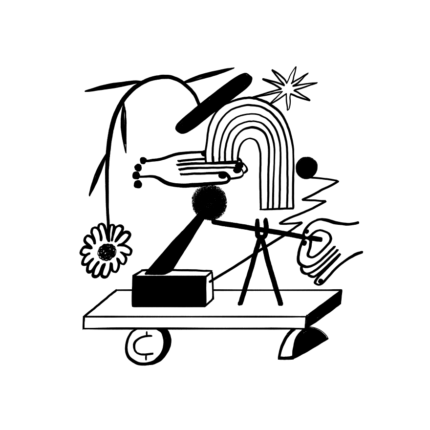
Mr. HSA on the tax-time (and anytime) benefits of an HSA
If there were a hall of fame for health savings account (HSA) superstars, Roy Ramthun would be a charter member. Having worked at the U.S. Department of the Treasury when HSAs were created in 2003—and as an HSA-holder himself since the beginning—he saw the many benefits they could provide Americans and quickly became a champion of them. He hasn’t stopped championing them ever since.
Through his website Ask Mr. HSA, his book, and his HSA Consulting Services practice, Ramthun has educated thousands of people on how to make the most of this unique account. We thought it would be great for you to hear what Ramthun thinks of HSAs two decades on and what he thinks you should know about them as another tax return deadline approaches.
Starship: Roy, thanks so much for sitting down with me—virtually, of course. Let’s start at the top: What’s your favorite thing about HSAs?
Ramthun: Well, it’s hard to pick one thing, but what I like most about HSAs is the free money, especially through tax savings—literally free money from the government. It’s like needing only 80 cents to come up with a dollar because the other 20 cents are free. And it comes in several forms—income tax savings, payroll tax savings, and then the free money from anybody else who contributes money to your account, such as your employer.
Starship: Yes, that’s very unique—get money from others and don’t pay taxes on it.
Ramthun: Right. It’s like that saying, “Follow the money.” Well, definitely follow the free money. I mean, how many other things do we know of in life where you can get free money?
Starship: That’s something that drew us to them and made us want to share that benefit with others. So now that we’ve established that we all like free money, what’s the most important thing people should know about their HSA come tax time?
Ramthun: The thing that I want people to know the most is that they have until the tax-filing deadline [April 18, 2022] to maximize their contributions and their tax savings if they haven’t already made the maximum allowed contributions for 2021 [$3,600 individual, $7,200 family]. (Note: 2024 contribution limit are $4,150 for individual and $8,300)
Starship: Individual retirement accounts (IRAs) also let you contribute up to tax-filing day. So why put the money into an HSA instead of, or before, putting it into an IRA?
Ramthun: Because the IRA doesn’t give you the same benefits—not everybody who puts money into an IRA can get a tax deduction. But everybody who participates in an HSA can completely avoid income tax on their contributions. Plus, you never have to take the money out until you need it. With an IRA, you have what’s called a “required minimum distribution.” That means that when you turn 72 years old, you have to start taking money out of your IRA. You never have to do that with an HSA until you need it, and you can take the money out tax-free if it’s used for qualified health care expenses.
Starship: Yeah, one thing I first learned from you about HSAs is that those “qualified health care expenses” can be claimed whenever you want. So I can get a knee replacement today, pay for it out-of-pocket if I have the money, and then wait 20 years to get reimbursed—knowing all along that my money is growing tax-free in my HSA.
Ramthun: Right. I’ve had an HSA now going on 16 years. I have never taken a withdrawal yet.
Starship: Getting back to tax-time considerations, we have a lot of account holders who are freelancers, gig workers, or otherwise self-employed. So the tax advantage for them comes in a different way from those who are W-2 workers and get pre-tax payroll deductions. What are the differences in the income tax treatment for pre- and post-tax contributions, like a payroll deduction versus putting money in yourself, or getting a post-tax contribution from another source throughout the year?
Ramthun: So think of “pre-tax” this way: Let’s say your wages for the year working for your employer are $42,000. If you make a $2,000 contribution to your HSA through payroll deduction, you’re essentially reducing your taxable wages to $40,000, so, you know, it’s reducing the total wages that the IRS recognizes for collecting income and payroll taxes. But you have to work for an employer that offers payroll deduction, so for all the gig workers out there–anyone who’s self-employed, including myself–you know we don’t have payroll deduction; we don’t get that opportunity. But that’s not the major share of the tax savings. It’s the income tax savings which, for an HSA, you get when you claim your contribution as a deduction on your income tax return. And so it doesn’t matter if we are working for an employer or we’re self-employed or gig, we always get the income tax savings.
Starship: Right, you get it at the end of the year rather than throughout the year. But it nets out pretty much the same.
Ramthun: I would really urge everyone to go with a take-control attitude because it’s one of the biggest deductions that’s left after all of the tax reform restructuring [from the Tax Reform Act of 2018]. A lot of deductions were lost and replaced with a standard deduction but HSAs were not affected by that. It’s still one of the best, if not the best, type of deduction that you can take because it’s not limited by your income. It’s not factored in where sometimes tax breaks phase out over certain income ranges. No, it’s right up front, right off the top. And then they start calculating all of the other things after that. So it’s your best tax break that you can take now.
But it’s not just about socking away the money for retirement. We’ve got to take savings where we can relative to how much we have spent on health care over the past year.
Starship: Yes, because we all have expenses every year, especially those with families or with chronic health conditions.
Ramthun: Right. In other words, don’t wait till the end of the year to figure it out every year. But just in case you do, there’s less guesswork involved. I can literally wait till the year’s over and figure it out, and then I’ve got until I file my tax return on April 15th to put in enough money to cover all those expenses. I recommend that people put the money in their first and ask questions later so you maximize while you can because the expenses are going to come and they’re going to be there. But you can always catch up, too.
Starship: Now, we are talking about a tax benefit, which means the IRS. So you want to be mindful to avoid getting a call from the IRS or, the horror, an audit.
Ramthun: I really haven’t heard any horror stories. I think the horror story that people worry about the most is that they’re going to be targeted for an audit because they have an HSA, but I’ve never heard of anybody being targeted. You know tax audits are always scary because you just don’t know what you don’t know, right? If you’ve never been through one then you really don’t know what the process is going to be. For example, you don’t know how nice the IRS agent is going to be. You don’t know what they’re looking for. You don’t know what they’re going to ask for. But you know the best way to avoid it all is to just keep decent records. Some people may be a little overconfident about their ability to produce the right information in those kinds of situations. You just need to save all of your receipts. You can do it in paper form or electronic. Just be consistent about it. I also track things in a spreadsheet just because I think it’s easier to find it that way.
[Pro tip: Starship lets you upload and store all of your health care expense receipts.]
Starship: Roy, this has been super-helpful. You know as much about HSAs as anyone. So, what are some things that others may not know about HSAs that will help them get as much as they can out of them?
Ramthun: Oh, there’s a lot. Let’s start with premiums. There’s Medicare Advantage premiums and long-term care insurance premiums in retirement or if you’re disabled. You can’t usually pay health insurance premiums with an HSA under age 65 but you can if you lost your job and have COBRA coverage. A lot of people are dealing with being unemployed or furloughed right now, so that’s a good one to know about—along with how many people have discovered how valuable it is to think of your HSA as a rainy-day fund.
And now we have the opportunity to spend our money on over-the-counter medicines and drugs again. For years, you had to have a prescription to get reimbursed for these medications. Well, that’s gone. Feminine hygiene products have been added to the list of things that you can be saving money for. All of your virtual trips to the doctor are now eligible. And if you do have to travel to see a doctor, you can count your mileage for those trips. Some people may have chronic conditions or surgeries that require a little bit more extensive travel, and they can include those costs.
So once you realize how many things you could be saving money for in your HSA, hopefully, that will encourage people to look at how much they’ve actually been putting in their HSA and try to save more because of all of the unforeseen possibilities in our future.
(This interview was edited for length and content.)


